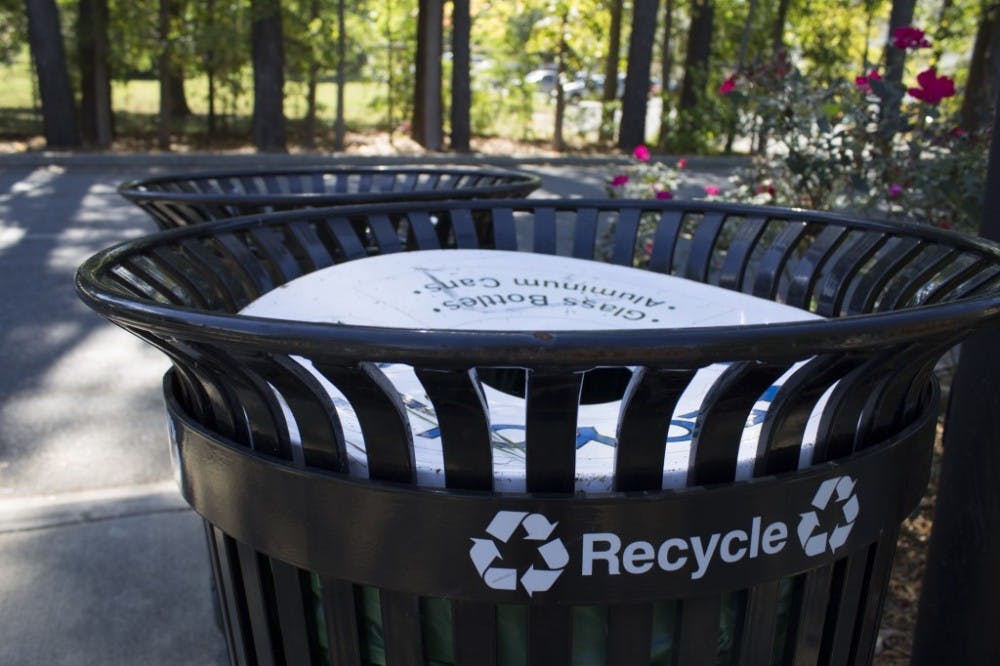In today’s world, recycling is no longer a foreign word. Whether or not one recycles at home, many Elon University students are familiar with the concept and know how to separate out plastics and glass products.
The school’s Office of Sustainability makes it difficult to ignore recycling, since events throughout the year, including RecycleMania and the Don’t Trash it! campaign, are broadcasted regularly. Still, even with all of the promotion and efforts made by students and campus-run organizations, the question must be raised: are we doing enough?
Students most often complaints about composting and off-campus housing trash bins. Composting is an undervalued environmental contribution. Used for fertilizing and conditioning land, composting is another form of recycling keeping people from throwing away their rotten fruits, eggshells, fruit rinds and other decomposable trash foods.
In general, if it can decompose, it can be composted. And while there is composting on campus, it is rarely utilized, nor is it easily accessible to all students.
Currently, there are two composting containers available on campus: one at Winter Garden Cafe and one at Fountain Market. This is not enough. Of those who do compost on campus, several note that it is unrealistic to walk from complexes such as Provence and the Station at Mill Point with a box of decomposing trash in hand to these locations. If Elon would like to see composting and recycling flourish more on campus, as it should, then this miniscule amount should be added to.
As far as general recycling goes, it should be easy to sort out waste into their corresponding bin.
Yet, there are places around campus that are making this easy process much more difficult. For instance, while on-campus apartments and dorms have clearly designated plastic, glass and cardboard bins for repurposing, this is not the case everywhere on and close to campus.
The Old Trollinger units, for instance, only have trashcans for plastic. While not technically part of campus, Old Trollinger, along with the rest of the Elon community, could easily have more bins to eliminate such massive amounts of waste.
These minor changes of adding more composting and recycling bins around the local community may seem superfluous, but as of now, Elon recycles or composts about 30 percent of its waste stream. This may seem like a rather large number, but when more than 75 percent of waste is recyclable, that number does not seem nearly as impressive. There are many things that we as a campus and as members of the Elon community could do to bring up this number.
Recently, a Wall Street Journal article announced California as the first state to ban plastic bags statewide. Such a simple switch to paper bagging at Elon could lead to less trash on the side of the road or in the lakes on campus.
There are easy adjustments to our daily lives that we could make. Just by picking up cans scattered across lawns or encouraging friends to join in on recycling efforts, this campus could be a much more eco-friendly place than it already is.


